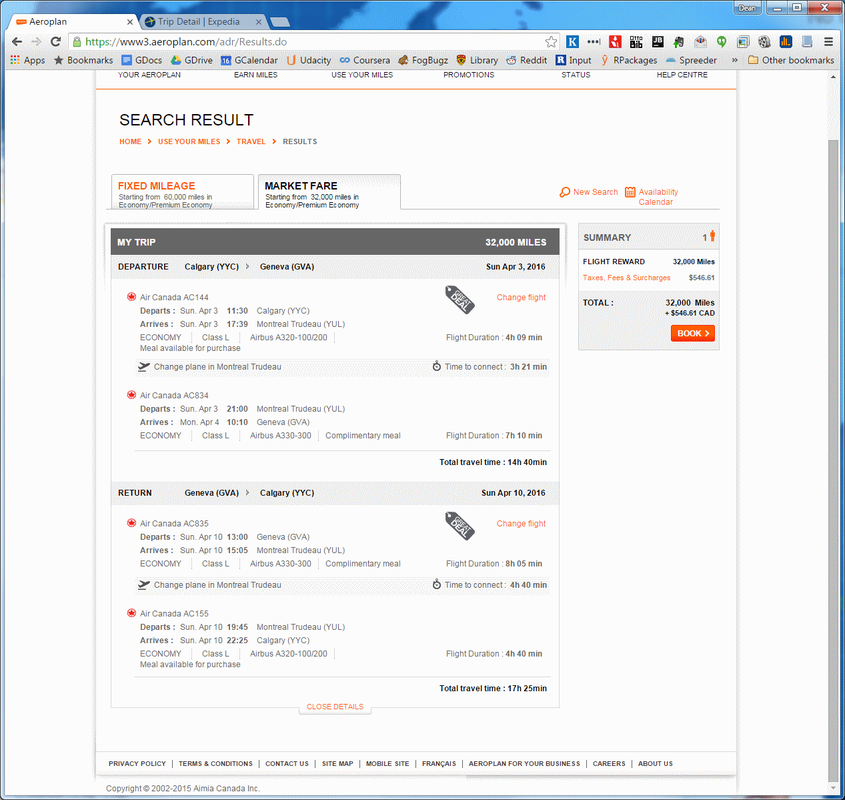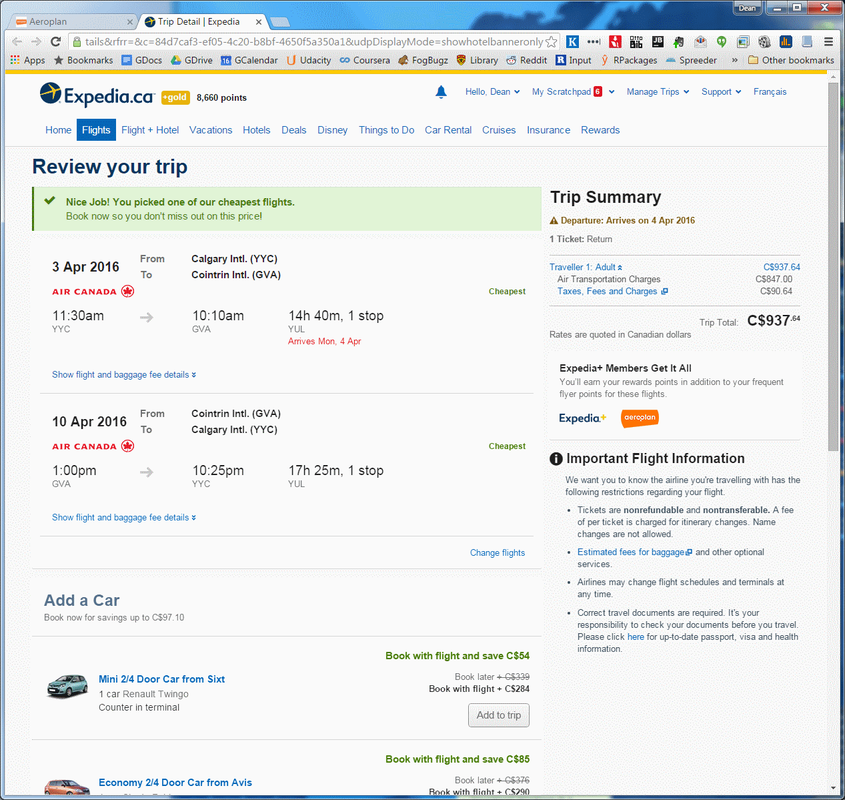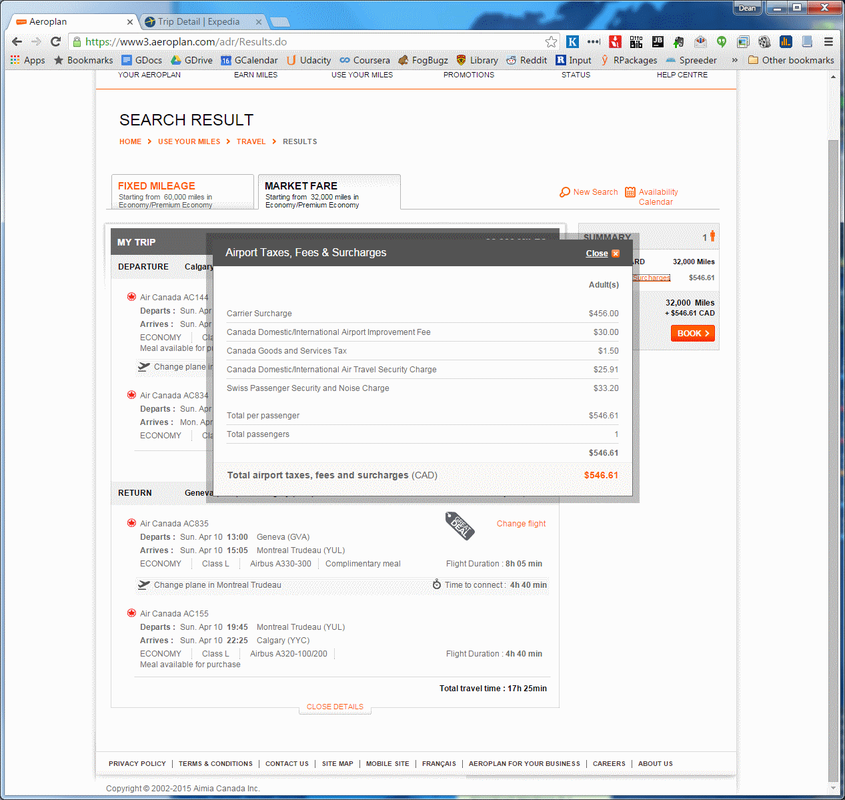Recently I have starting to question the value of Aeroplan. Over the years we have seen the devaluing of points.
Examples have included the increase in Business Class to Asia (125,000 to 150,000), Economy class to Australia (80,000 to 90,000), Business Class to Europe (from 90,000 to 110,000) and recently, moving Thailand, Singapore, and Vietnam into the Asia 2 category which now requires 90,000 miles compared to the previous 75,000.
How this Aeroplan devaluation is not a Ponzi scheme baffles me. It would seem to me that Aeroplan miles earned should retain their value (rewards) based upon the time they collected.
Definition of a Ponzi Scheme from Wikipedia:
"A Ponzi scheme is a fraudulent investment operation where the operator, an individual or organization, pays returns to its investors from new capital paid to the operators by new investors, rather than from profit earned by the operator."
Additionally with the devaluation of Aeroplan miles, we also have issues of limited availability,and an increasing fees.
To expand on this further, I looked at booking a flight using Aeroplan and Expedia. Here are the results:
The search was conducted on February 18, 2016 for Calgary (YYC) to Geneva (GVA) return from April 3-10, 2016. Screenshots provided below.
The results were:
Aeroplan 60,000 miles + $546.61 (airport taxes, fees and surcharges)
Expedia $937.64 ($90.64 taxes)
Breaking down the Aeroplan airport taxes, fees and surcharges we see that $456.00 was a "Carrier Surcharge". This is basically half of what a normal flight would cost (and you are still using 60,000 Aeroplan for obtaining your "free" flight).
Aeroplan tries to explain what this mean.
http://blog.aeroplan.com/aeroplan/aeroplan-answers-your-questions/
Why do I have to pay for Carrier Surcharges and why are they different than if you pay for an Air Canada flight?
Aeroplan does not determine the carrier surcharge, the amount is determined by each airline carrier individually and varies based on their own costs, destination, cabin etc.
All major loyalty programs in Canada are required to collect carrier-imposed surcharges. Aeroplan only applies these surcharges where applicable on behalf of its partner Air Canada. 100 per cent of the surcharges applied are passed directly to Air Canada for settlement with the applicable airlines and Aeroplan only applies the surcharge for carriers that already apply the surcharge to their own frequent flyer program tickets.
Similar to all other loyalty programs in Canada, the carrier surcharge for all Aeroplan Flight Rewards (ClassicFlight and Market Fare Flight Reward) on International itineraries is the same as the surcharge Air Canada collects on all of their revenue tickets purchased by customers.
Air Canada applies a carrier surcharge as a separate amount for ClassicFlight Rewards on North American itineraries and has done so since 2004.
Carrier surcharge for Market Fare Flight Rewards on North America is the same as the surcharge Air Canada collects on all of their tickets purchased by customers. Because Aeroplan Market Fare Flight Rewards are derived from Air Canada’s base fares at time of booking, the conversion of these fares into variable mileage levels includes the carrier surcharges.
Another good write-up on this is at:
http://onemileatatime.boardingarea.com/2015/09/25/aeroplan-award-chart-devaluation-as-of-december-15-2015/
Examples have included the increase in Business Class to Asia (125,000 to 150,000), Economy class to Australia (80,000 to 90,000), Business Class to Europe (from 90,000 to 110,000) and recently, moving Thailand, Singapore, and Vietnam into the Asia 2 category which now requires 90,000 miles compared to the previous 75,000.
How this Aeroplan devaluation is not a Ponzi scheme baffles me. It would seem to me that Aeroplan miles earned should retain their value (rewards) based upon the time they collected.
Definition of a Ponzi Scheme from Wikipedia:
"A Ponzi scheme is a fraudulent investment operation where the operator, an individual or organization, pays returns to its investors from new capital paid to the operators by new investors, rather than from profit earned by the operator."
Additionally with the devaluation of Aeroplan miles, we also have issues of limited availability,and an increasing fees.
To expand on this further, I looked at booking a flight using Aeroplan and Expedia. Here are the results:
The search was conducted on February 18, 2016 for Calgary (YYC) to Geneva (GVA) return from April 3-10, 2016. Screenshots provided below.
The results were:
Aeroplan 60,000 miles + $546.61 (airport taxes, fees and surcharges)
Expedia $937.64 ($90.64 taxes)
Breaking down the Aeroplan airport taxes, fees and surcharges we see that $456.00 was a "Carrier Surcharge". This is basically half of what a normal flight would cost (and you are still using 60,000 Aeroplan for obtaining your "free" flight).
Aeroplan tries to explain what this mean.
http://blog.aeroplan.com/aeroplan/aeroplan-answers-your-questions/
Why do I have to pay for Carrier Surcharges and why are they different than if you pay for an Air Canada flight?
Aeroplan does not determine the carrier surcharge, the amount is determined by each airline carrier individually and varies based on their own costs, destination, cabin etc.
All major loyalty programs in Canada are required to collect carrier-imposed surcharges. Aeroplan only applies these surcharges where applicable on behalf of its partner Air Canada. 100 per cent of the surcharges applied are passed directly to Air Canada for settlement with the applicable airlines and Aeroplan only applies the surcharge for carriers that already apply the surcharge to their own frequent flyer program tickets.
Similar to all other loyalty programs in Canada, the carrier surcharge for all Aeroplan Flight Rewards (ClassicFlight and Market Fare Flight Reward) on International itineraries is the same as the surcharge Air Canada collects on all of their revenue tickets purchased by customers.
Air Canada applies a carrier surcharge as a separate amount for ClassicFlight Rewards on North American itineraries and has done so since 2004.
Carrier surcharge for Market Fare Flight Rewards on North America is the same as the surcharge Air Canada collects on all of their tickets purchased by customers. Because Aeroplan Market Fare Flight Rewards are derived from Air Canada’s base fares at time of booking, the conversion of these fares into variable mileage levels includes the carrier surcharges.
Another good write-up on this is at:
http://onemileatatime.boardingarea.com/2015/09/25/aeroplan-award-chart-devaluation-as-of-december-15-2015/



 RSS Feed
RSS Feed